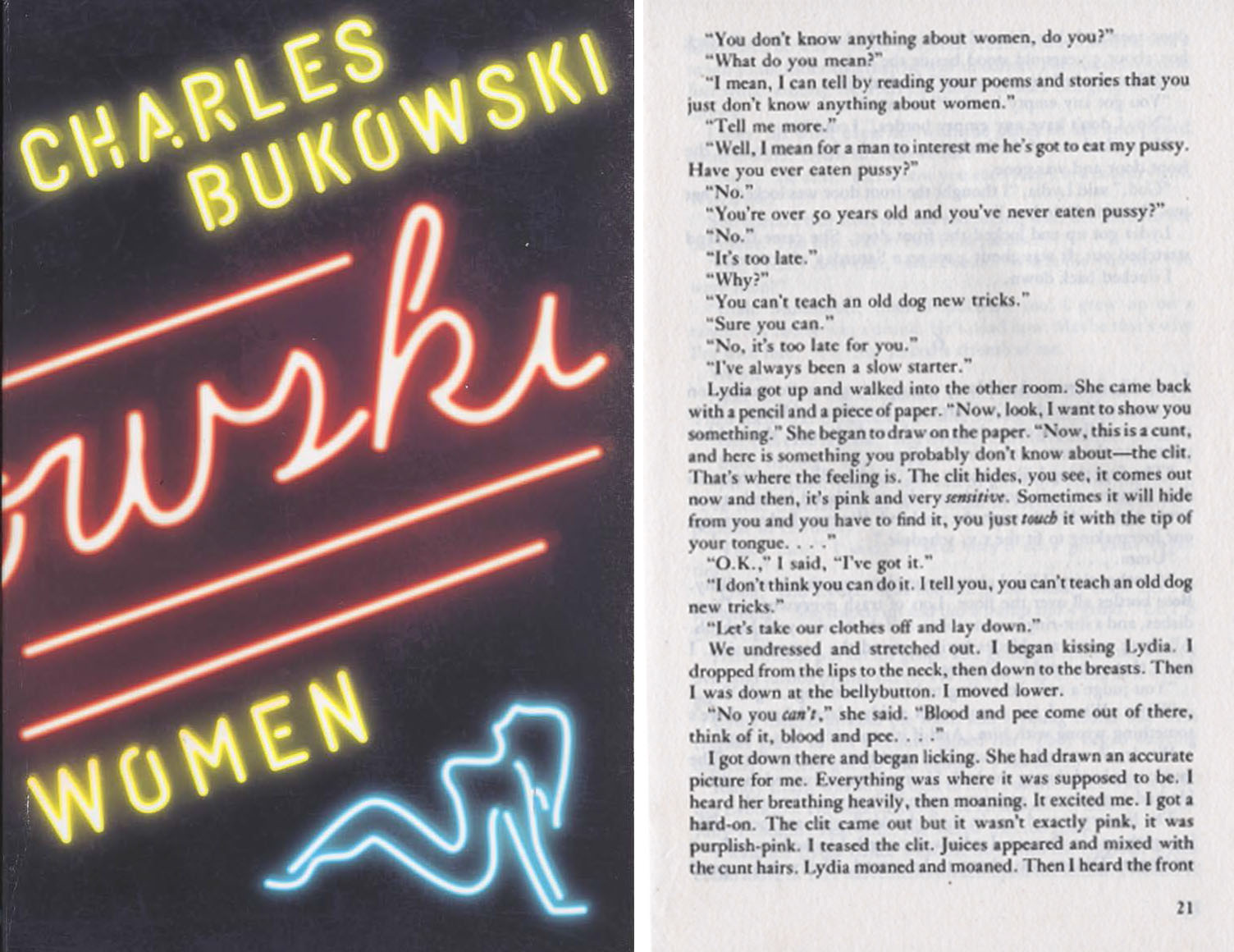Caveat: Work in Progress! Biographic material subject to revision as things appear differently sometimes, when looking back, as time, unfolded, reveals me to me, as if I’m elsewhere and then it seems that I-today remembers me differently. I-today wasn’t present and what was sometimes humiliates me to consider. This line leads me to why am I here now? I have a human need for creative projects. I’m loved by my daughter, who is almost a sister.
I didn’t understand the longterm impact of an emotion of disgust in the presence of an older person, a not wanting to be them; that I couldn’t imagine becoming old and I didn’t want to. I also feared I would die very young. Thoughtlessly, I found myself on the threshold of my own age bias. Perceptions of age in this culture reflect the relationship of erotic love to power and it’s not a sliding scale.
My feelings and the empirical evidence presume that life means something, I’ve given it thought and I rationally choose it despite the evidence. That I wait for things to change is a prayer. Then, there’s music and reading and for some, who can afford it, whoring. The world would change direction if we subsidized sex work. A voucher system. There are epic possibilities for corruption. Expressions of anger and revenge would show up in new ways. A mini series.
My character’s genetic structure must reflect at least a couple centuries of music and theatre. However, the creative process is a form of madness and I had experiences of abandonment at unusual events in the early years. I’m always editing names. Memory delivers images of events that I describe using words, sometimes imagined events. It’s helpful to know the difference and many times it’s hard to say. Memory is not the interpreter but it remembers interpretations associated with emotions in different ways depending on the experience and awareness of the rememberer.
I remember when she went to work as a typist at the Philadelphia Navy yard in 1940, placing me in Loretta’s hands. But I didn’t know where she went nor what people did there. Yet I got how she felt about working at the place. She had literally left the house she and my father rented in Hollywood with my brother, who was 3 at the time. I was born in Chicago on a stop-over to Philadelphia. I met my father finally at the age of 35, when I was on or just over the brink of divorce. He said he married, in sequence, three women, producing two children with each. I’m afraid that’s in the genes. I’ve felt the weight of karma, which endorses my underlying Jewish mentality.
Mother had no time and less energy nor a great desire to oversee temperamental talent but she understood and even felt compassion for its provenance, everything about her experience of my father disgusted her, including the music profession. I get the efficacy of practicing scales but I don’t do it well enough to be profitable. In my world, we have technology that has allowed me to make distinctions in music with as much if not more attention, to hear the Bach in Mahler and v.v. Where would we be with technology if we couldn’t make it possible for a composer to create a symphony without his becoming a skilled performer of an acoustic instrument? This is one of the reasons why I had to wait so long, longing sometimes for the day to come, surrounding myself with instruments I learned to make lovely sounds on but not to play. I avoid playing with others and am generally, uncool. I’ve been a demon for getting jobs done when I’m called upon to do and I’m mostly useful in creative work. I’ve been prescient as a writer, taking things to logical conclusions and remaining alert to changing circumstances.
When I was four years old, she had farmed my brother out to live with our uncle and moved us into the large flat above the store her mother’s second husband owned in Camden, New Jersey and I got to know black people when I wandered away when grandma was inattentive. My brother was unwanted by his aunt having to do with my brothers effect on his cousin, her son, who became the chief administrator of a significant psychiatric hospital.
So she moved us from my grandmother’s flat in a Jewish ghetto on Kaighns Avenue to a flat in a brownstone on North 15th Street in Philadelphia. The three-story house was a long block north off Allegheny, on a corner of a cultural vortex at the intersecting boundaries of black, Irish Catholic, Protestant and Italian Catholic communities. No other Jews lived here. Kids played in their own communities and learned a xenophobic interest in those of other communities but there was no Jewish community in this intersection. I felt it was safer to be invisible. It was a strategy to disappear, like a chameleon, hiding in the background, as I passed from world to world to world walking to and from school.
With the experience of a chameleon not unlike Felix Krull, I commenced a life and even though it included assumptions of privilege of race and intellect and even though fortune presented opportunities and even though I can’t avoid accomplishing whatever is set before me to do, I have felt compelled to deprecate my natural talent and move forward as if methodically. In a high school, in Norwalk, California, I was identified by a perceptive teacher as a clever communicator and my mother began collecting trophies I’d win in forensic contests. It was thrilling to be emotionally committed and emotionally detached in the performance. At Long Beach State College, I continued to compete and discovered sculpture and radio theater. I directed two and wrote two for the college radio program. I was in love but introduced to sex by a sexually avid 19 year old theater student from Santa Ana. I was grateful also for the degree because I was starving at the time until a girlfriend arranged for me to get a job as a social worker, providing I got the diploma.
A couple years later, I met Anne Webster; shortly before I was fired from my job as a probation counselor by the new manager of an LA County probation camp for emotionally disturbed male juvenile delinquents. They brought in Ira from Israel where he’d worked in a military boot camp. He wore khaki and introduced the camp to the Israeli tough love approach to behavior modification. Since I had more in common with the juvenile charges we oversaw, I didn’t fit Ira’s pictures. I was in angst over a woman I adored, who didn’t want to know I existed, not that I could have changed that then.
Had I read Don Quixote then, as my girlfriend’s mother suggested, I wouldn’t have recognized myself anyway. I don’t remember what inspired it but I went to Puerto Vallarta by train and bus and when I returned, I moved into a house in Santa Monica with Anne. 1967 was not a bad year, give or take Lyndon Johnson and the Vietnam war.
Anne introduced me to Buñuel, Bergman, Kurosawa, Fellini and so on. It occurred to me that, if a storteller can show photographic images in addition to the audio, making a narrative fiction in film is a piece of cake and the universe smiled and agreed. I began making films first for use in elementary school classrooms. Viewers followed my stories, young children and black people; especially. When I was 11 years old, I was the only white male at Gillespie Junior High School, which later led to a connection with John Birks (Dizzy) Gillespie and a tour to Upsala with him and Art Blakey, Dexter Gordon, Thelonius Monk, Ben Webster, Don Cherry, Sahib Shihab.
Several years later, after Anne and I had split up and I was in LA and she and my daughter lived in Oakland, I had an idea for a movie based on a magic building but, instead of producing the story, I got Xerox to help me make the building. My chameleon act: “Can you do that?” “Sure I can do that”” The media called the building the most intelligent building in the world, an oxymoron. McGraw Hill published my book about it, called, Architectonics. I discovered that I can write pretty good. I then led a new nonprofit corporation in San Diego and before I knew it, I’d developed hundreds of homes affordable to families of people with whom I have nothing in common but my human physical form, not unlike those around whom I grew up in Philadelphia and Camden, New Jersey.
In the morning of February 17, 1997, during my daily 7 A.M. run on the beach, I fell unconscious into the Pacific Ocean due to oxygen starvation in my brain when the aortic valve didn’t open sufficiently. I regained consciousness as the blood rushed to my head when I was floating face down in the water. For a few minutes, although I was, in a sense, awake, my eyes took in the view of sand settling below the surf, I had no memory.. “I” simply didn’t occur. Nothing occurred. I felt nothing but a sense of awe. No desire, no regret, no pain, no judgment, I felt lucid, satisfying sensation. As my eyes scanned trees and residences along the bluff above the beach, I felt vague familiarity and curiosity. My attention came to rest on a large, round window in the gable of a grey clapboard house. It’s peculiar shape connected with the name of the neighbor who designed that house. As her name occurred to me, my life came tumbling back to me through that round window like a tornado in reverse motion. I thought, in the words of Jackie Gleason, “Pow! Right in the kisser!”
Following a “pulmonary autograft procedure” (open heart surgery), my heart was successfully reconstructed. The medical profession is unable to acknowledge the post traumatic stress disorder created by terrifying medical procedures, leaving parents to their psychological fate, which varies depending on the patient’s immediate family and I had none. Systematically, I gave up everything, though I tried to keep my dignity. I gave up human relationship. I gave up my home and I drove off, heading north from Del Mar in an old pickup truck with a camper shell, with a dog and a cat. A year later, when I was camping alone, in a 1973 Southwind RV, in a redwood forest 13 miles from Ft. Bragg in Mendocino County, first the cat and then the dog died. I then truly had nothing and it wasn’t any better that I knew I had nothing, however, there was a stark authenticity about it that reminded me of my experience on the beach in Del Mar that day when I didn’t remember anything.
The road into the place, where I camped in Jackson State Forest was an ancient logging road that winds down the side of a canyon from Highway 22 to a tributary of the Noyo. The road is a litany of jarring potholes and bone rattling rocks constantly overturned by logging trucks. Twisting ruts deepened in frequent rains and then filled with dust again when it was dry. The occasional pile of bear shit and fallen branches added surprise and color each day but I grew to know that road “like the back of my hand”. I timed the four miles of ruts, rocks and hairpin turns above precipitous drops and tried to beat my time from camp to highway and highway to camp. At speed, sound and movement became rhythmic and, my brain, soaked in adrenalin, gave me a short-lived feeling of being alive. It was at the start of one of these trips, when I was taking Bear (the dog) to a vet, that I first heard the music.
At first I thought I only remembered the Can Can from Offenbach’s Tales of Hoffman. I was frightened, when I couldn’t make the music stop. Then the music stopped when I stopped the truck at the stop sign at 22, starting again when I turned onto the highway. I could stop listening to the music by putting my attention on something else, but the music continued. When I focused on the music, I could hear all the instruments and I found I could change the tempo and I began playing with the arrangement and orchestration.
By now, I’ve read Oliver Sacks studies of patients in his book, Musicophilia (Random House,2007) but when this happened, I had a thought that going mad is unfairly criticized that being nuts isn’t so bad. That I heard the Can Can seemed profoundly ironic. It started at the instant the truck started and it only stopped at the completion of a perfect cadential phrase and I would carefully stop the truck and modify the tempo towards this end. I experimented with turning the music on and off while imagining driving. Tales of Hoffman was the first piece of theatrical music I heard, when my mother left me in the care of my grandmother and I played with her Victrola records.
I’m astonished and a little bitter thinking about my long unacknowledged capacity for creation of music, like an unrequited love denied through a lifetime of emotional poverty, persisting through all my careers during my time as a chameleon. How remarkable that during all those years, I’d always owned and toyed with instruments. For several years, when I lived in Canada, there were five pianos in my home and a bass viol, vibraphone, several guitars, flutes and some drums. I played them for fun and relaxation. And I often chose the company of musicians, whom I envied for making a living doing what they loved to, but also, I envied them their musical ability. I felt intuitively that I could learn to play but I’d never learn to use an instrument like Casals, Miles or Ellington. I was resigned that I wouldn’t make music.
Offenbach’s Can Can is a musical rendering of Hieronymus Bosch’s vision of The Garden of Earthly Delights. When I moved out of the forest and into an RV Park in Ft. Bragg. I also began to suspect that my interest is music was a message. In light of my fascination with music since those early days with my Grandmother’s Victrola,, it seems strange that I avoided taking it up seriously. But it makes perfect sense that I should feel as I do for I knew no other way to develop knowledge and ability with music except by mastering an instrument because this is conventional knowledge. Ask any music teacher in any school anywhere. Nevertheless, my ambition has always been to conduct the philharmonic and while I’d avoided any serious study of music, my experience of the most complex harmony grew intuitively. To not study music now was no longer an option. Offenbach’s high kicking line of dancers launched me into my career.
It seems astounding that five years later, I’ve earned an MFA in composition. I’ve deconstructed and recreated works of Bartok, Bach, Debussy, Stravinsky, Schoenberg, Mahler, Brahms, Beethoven and I’ve learned enough about Arabic Maqam, Indian Carnatic and traditional Chinese music to understand and use their idiomatic forms. Most importantly, I feel satisfied when I’m writing music.
Much of what I’ve learned about music has been through reading, taking classes and learning how to listen acutely but my progress has been mostly empowered by new professional audio software for programming midi mainly using samples sold by Vienna Symphonic Instruments. Years of dedicated practice might allow a gifted musician to play in a symphony orchestra but you can learn more about a complex piece when you program the shape of each note by each instrument. This technology allows you to stand on the practice of all music ever by anyone anywhere and anytime.
The best part of this story is my journey in music has only just begun.
































